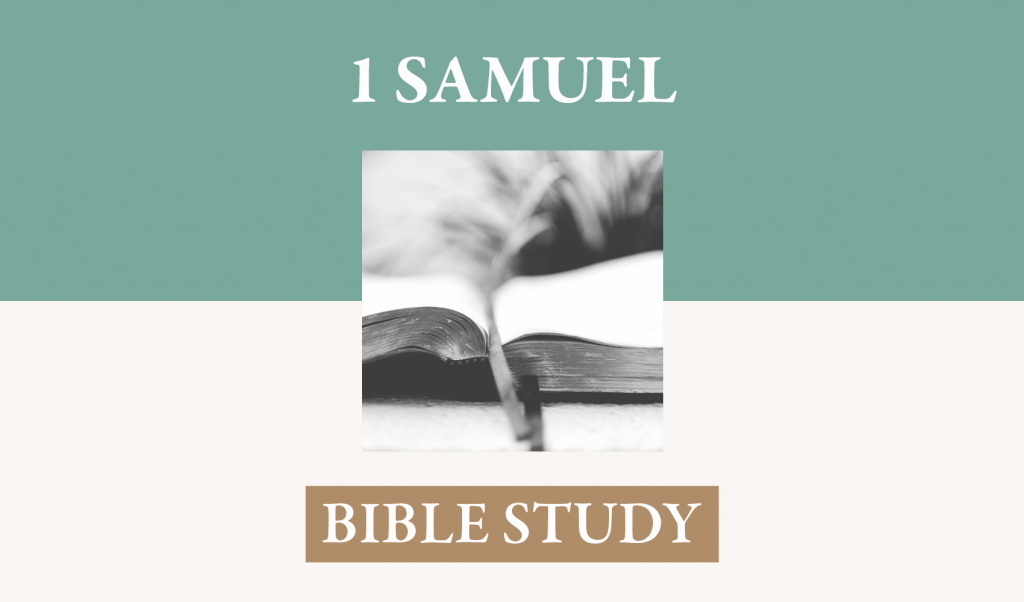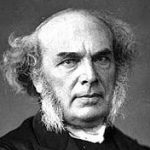Lesson Focus: This lesson is designed to introduce you to some characteristics of a godly mother – indeed, of all godly parents.
Hannah’s Sorrow: 1 Samuel 1:1-2,10.
[1] There was a certain man of Ramathaim-zophim of the hill country of Ephraim whose name was Elkanah the son of Jeroham, son of Elihu, son of Tohu, son of Zuph, an Ephrathite. [2] He had two wives. The name of the one was Hannah, and the name of the other, Peninnah. And Peninnah had children, but Hannah had no children. [10] She was deeply distressed and prayed to the LORD and wept bitterly. [ESV]
Hannah’s name means "grace." It is a fitting designation for a woman whose life was crowned with grace and who became a living emblem of the grace of motherhood. A study of her life reveals the classic profile of a godly mother. Yet Hannah almost despaired of ever becoming a mother. Her experience strongly echoes Sarah’s. Like Sarah, she was childless and distraught over it. Both women’s marriages were plagued with stress because of their husbands’ bigamy. Both of them ultimately received the blessing they sought from God, and in both cases, the answers to their prayers turned out to be exceedingly and abundantly more significant than they had ever dared to ask or think. Hannah’s son, Samuel, was the last of the judges. He was also a priest, the one who formally inaugurated the true royal line of Israel by anointing David as king. Samuel became a towering figure in Israel’s history. Thus Hannah’s life often mirrored that of the original matriarch, Sarah. Most of all, she mirrored Sarah’s amazing faith and perseverance. In a similar way, Hannah also foreshadowed Mary, the mother of Jesus. Hannah’s prayer of dedication in 1 Samuel 2:1-10 was the model for Mary’s Magnificat in Luke 1:46-55. Both Hannah and Mary formally dedicated their firstborn sons to the Lord [1 Sam. 1:24-28; Luke 2:22-24]. Surrender to God’s will cost each of them dearly in terms of emotional suffering. In Hannah’s case, this meant the painful sorrow of separation from her own child. Samuel left home to begin his full-time training in the tabernacle when he was still a young toddler, at a time when most children still enjoy the comfort of their mothers’ arms.
Hannah was an obscure woman living in a remote part of Israel with her husband, Elkanah. They made their home in the territory occupied by the tribe of Ephraim. Hannah faithfully traveled with Elkanah to the tabernacle every year to worship and offer a sacrifice. Scripture portrays them as a devout family, yet living in a dismal period of Israel’s history. In those dry and gloomy days, Hannah stood out as a ray of light. Not only was she the quintessential godly mother and wife, but in a spiritually cold generation she exemplified patience, prayerfulness, faith, meekness, submission, spiritual devotion, and motherly love. In spite of her gracious character, Hannah’s home life was often troubled and sorrowful. Her husband was a bigamist married to both Hannah and Peninnah. Obviously, this situation caused severe tension in the family. Peninnah had children and deliberately provoked Hannah, goading her about the fact that the Lord had withheld children from her. Elkanah preferred Hannah, whom he loved deeply, but that only magnified the bitter rivalry between the women. Such strife was an inevitable side effect of Elkanah’s bigamy.
Hannah’s Supplication: 1 Samuel 1:11,17-18.
[11] And she vowed a vow and said, "O LORD of hosts, if you will indeed look on the affliction of your servant and remember me and not forget your servant, but will give to your servant a son, then I will give him to the LORD all the days of his life, and no razor shall touch his head." [17] Then Eli answered, "Go in peace, and the God of Israel grant your petition that you have made to him." [18] And she said, "Let your servant find favor in your eyes." Then the woman went her way and ate, and her face was no longer sad. [ESV]
We first encounter Hannah when Israel was in desperate need of a great leader and a great man. Hannah became the woman whom God used to help shape that man. Samuel proved to be the one man who could fill the leadership void. His character bore the clear stamp of his mother’s influence, even though he left home at such an early age. Hannah’s influence as a godly wife and mother is traceable to the three great loves of her life: Husband, Heaven and Home. From the beginning of Scripture’s account of her family, it is evident that Hannah had a deep love for Elkanah, as he did for her. When they made a peace offering to the Lord, Elkanah gave portions to Peninnah and all her children, but he gave a double portion to Hannah because of his great love for her [1:4-5]. This was a public honor that he regularly and deliberately bestowed on her in the presence of others at a feast. Obviously, Hannah’s marriage was not a perfect one, chiefly because of the jealousy and rivalry her husband’s polygamous marriage caused. Apparently Elkanah married Peninnah because of Hannah’s barrenness. Remember, it was deemed vitally important in that culture to have children who could maintain the family inheritance and the family name. But Hannah’s marriage, though marred by tensions, was solid. Elkanah obviously loved Hannah with a sincere affection, and he knew her love for him was reciprocal. In fact, he tried to comfort her by tenderly reminding her of his love for her [1:8]. Hannah’s love for her husband is the first key to understanding her profound influence as a mother. Contrary to popular opinion, the most important characteristic of a godly mother is not her relationship with her children. It is her love for her husband. The love between husband and wife is the real key to a thriving family. A healthy home environment cannot be built exclusively on the parents’ love for their children. Furthermore, all parents need to heed this lesson: what you communicate to your children through your marital relationship will stay with them for the rest of their lives. By watching how mother and father treat one another, they will learn the most fundamental lessons of life: love, self-sacrifice, integrity, virtue, sin, sympathy, compassion, understanding, and forgiveness. Whatever you teach them about those things, right or wrong, is planted deep within their hearts. That emphasis on the centrality of marriage was very evident between Elkanah and Hannah. With all their domestic issues, they nonetheless had a healthy marriage and an abiding love for one another. Their inability to have children together was like an open wound. But it was an experience that drew out of Elkanah tender expressions of love for his wife. And even in a home environment with a second wife and multiple children – a chaos created by the folly of Elkanah’s bigamy and made even more dysfunctional by Peninnah’s ill temperament – Hannah and Elkanah clearly loved one another deeply. Worship seemed to have been a central aspect of Hannah and Elkanah’s lives together. This was what kept their love for one another strong in the face of so much adversity.
It also explains the second reason why Hannah was such an influential mother. As much as she loved Elkanah, there was an even greater love that motivated her: love for heaven. Hannah obviously had a deep and abiding love for God. Her spiritual passion was seen in the fervency of her prayer life. She was a devout woman whose affections were set on heavenly things, not on earthly things. Her desire for a child was no mere craving for self-gratification. It wasn’t about getting what she wanted. It was about self-sacrifice, giving herself to that little life in order to give him back to the Lord. Hannah’s prayer to God was for one son who would be fit to serve in the tabernacle. If God would give her that son, she would give him back to God. Hannah’s actions proved that she wanted a child not for her own pleasure, but because she wanted to dedicate him to the Lord. It was significant that despite the bitter agony Hannah suffered because of her childlessness, she never became a complainer. There is no suggestion that she ever grumbled against God or badgered her husband about her childlessness. Despite her disappointment and heartache, she remained faithful to the Lord. In fact, frustration seems to have turned her more and more to the Lord, not away from Him. And she persisted in prayer. That is a beautiful characteristic, and it was Hannah’s distinctive virtue: constant, steadfast faith: And she continued praying before the Lord [1:12]. She stayed before the Lord, even with a broken heart, pouring out tearful prayers. Her trials thus had the benefit of making her a woman of prayer. The value of persistent and passionate prayer is one of the central lessons from Hannah’s life. Hannah obviously wanted her son to be a godly man, serving and glorifying the Lord all his life. These were not promises she made lightly, and when God finally answered her prayer, she did not recoil from the difficult duty her vow had placed on her as Samuel’s mother. Hannah cast her whole burden upon the Lord and left her sense of frustration there at the altar. She did what she had come to the tabernacle to do. She had brought her case before the Lord. Now she was content to leave the matter in His hands. That demonstrates how genuine and patient her faith truly was. Hannah truly laid her troubles in the lap of the Lord, totally confident that He would answer her in accord with what was best for her.
Hannah’s Sacrifice: 1 Samuel 1:21-28.
[21] The man Elkanah and all his house went up to offer to the LORD the yearly sacrifice and to pay his vow. [22] But Hannah did not go up, for she said to her husband, "As soon as the child is weaned, I will bring him, so that he may appear in the presence of the LORD and dwell there forever." [23] Elkanah her husband said to her, "Do what seems best to you; wait until you have weaned him; only, may the LORD establish his word." So the woman remained and nursed her son until she weaned him. [24] And when she had weaned him, she took him up with her, along with a three-year-old bull, an ephah of flour, and a skin of wine, and she brought him to the house of the LORD at
A third major characteristic of Hannah was her devotion to home and family. We see evidence of this from the beginning, in her love for Elkanah and his love for her. We see it in the way she rose above the petty strife and feuding Peninnah deliberately tried to sow within her own household with no other intention than to exasperate Hannah. We see it again in Hannah’s intense longing to be a mother. We see it best in how committed she was to her child in his infancy. Hannah devoted herself solely to Samuel’s care for the first few years of his life. She knew her time with Samuel would be short. Mothers in that culture nursed their children for about three years. She would care for him during his most formative years, while he learned to walk and talk. She taught him his first lessons about Yahweh. She made her home an environment where he could learn and grow in safety. And she carefully directed the course of his learning and helped shape his interests. She prepared Samuel in those formative years for a lifetime of service to God. As soon as he was weaned, though, she was determined to fulfill her vow. It must have been intensely painful for her to send Samuel off at such a tender age. In effect, the tabernacle became his boarding school and Eli his tutor. But it is apparent that Hannah’s influence on Samuel remained far more of a guiding force in his life than the spiritually feeble example of Eli. No doubt Hannah kept as close to Samuel as the arrangement would allow. She and Elkanah naturally would have increased their visits to Shiloh in light of Hannah’s intense love for Samuel. Scripture says she used to make for him a little robe and take it to him each year when she went up with her husband to offer the yearly sacrifice [2:19]. Scripture says God blessed Hannah with five more children. Her home and family life became rich and full. She was blessed by God to be allowed to achieve every ambition she had ever longed to fulfill. Her love for heaven, husband and home are still the true priorities for every godly wife and mother. Her extraordinary life stands as a wonderful example to women today who want their homes to be places where God is honored, even in the midst of a dark and sinful culture. Hannah showed us what the Lord can do through one woman totally and unreservedly devoted to Him.
Hannah’s Song: 1 Samuel 2:1-2.
[1] And Hannah prayed and said, "My heart exults in the LORD; my strength is exalted in the LORD. My mouth derides my enemies, because I rejoice in your salvation. [2] "There is none holy like the LORD; there is none besides you; there is no rock like our God. [ESV]
When God finally did answer Hannah’s prayer by giving her the son she had asked for, her thankful soul responded with a pure, unbroken stream of praise. Her words, recorded for us in 1 Samuel 2:1-10, are a masterpiece. She acknowledge God’s holiness, His goodness, His sovereignty, His power, and His wisdom. She worshiped Him as Savior, as Creator, and as sovereign judge. She acknowledged the fallenness and depravity of human nature, as well as the folly of unbelief and rebellion. In short, her few stanzas were a masterpiece of theological understanding. Hannah spoke about God from her own intimate knowledge of Him. Her words of praise were filled with love and wonder. That love for God, and a love for all things heavenly, was one of the keys to Hannah’s lasting influence as a mother.
Questions for Discussion:
1. Describe the life situation in which Hannah lived: both the historical/political and her family life. How does this context in which she lived show us her strength of character?
2. What three great loves did Hannah have? How did each of these three loves shape Hannah’s character?
3. Read Hannah’s prayer of praise in 1 Samuel 2:1-10. List what she says about God; about herself.
4. What do we learn from Hannah about being a godly parent?
References:
1,2 Samuel, Robert Bergen, NAC, Broadman.
The Message of Samuel, Mary Evans, Inter Varsity Press.
Twelve Extraordinary Women, John MacArthur, Nelson Books.

















